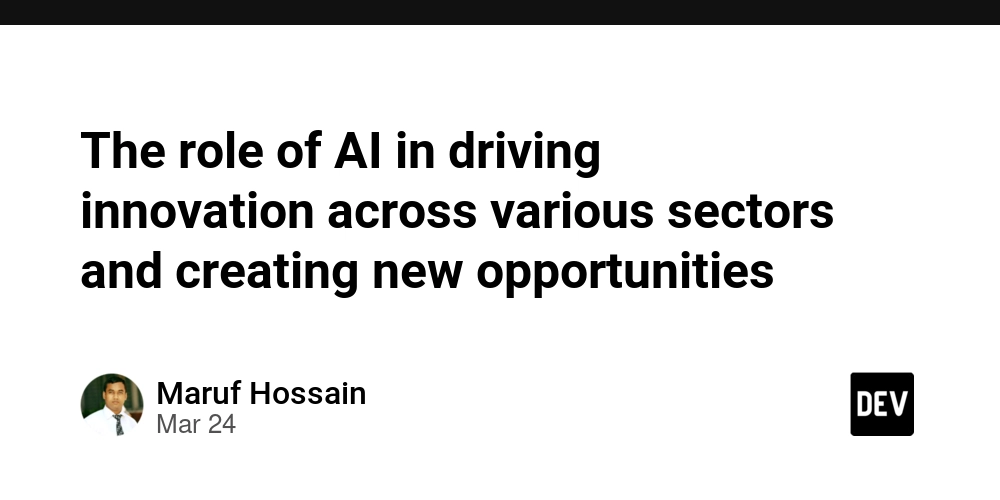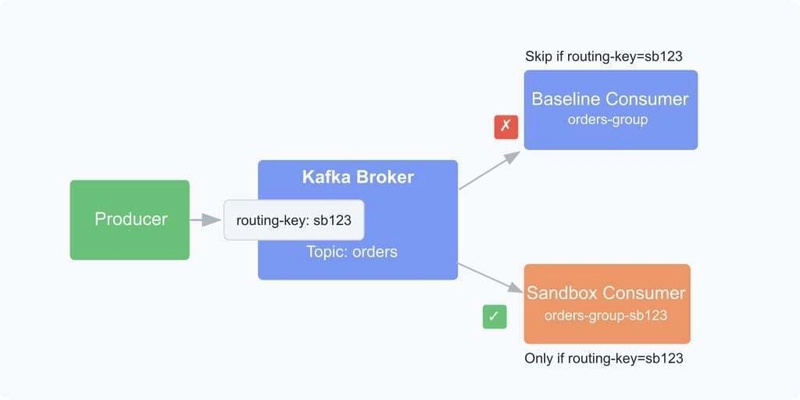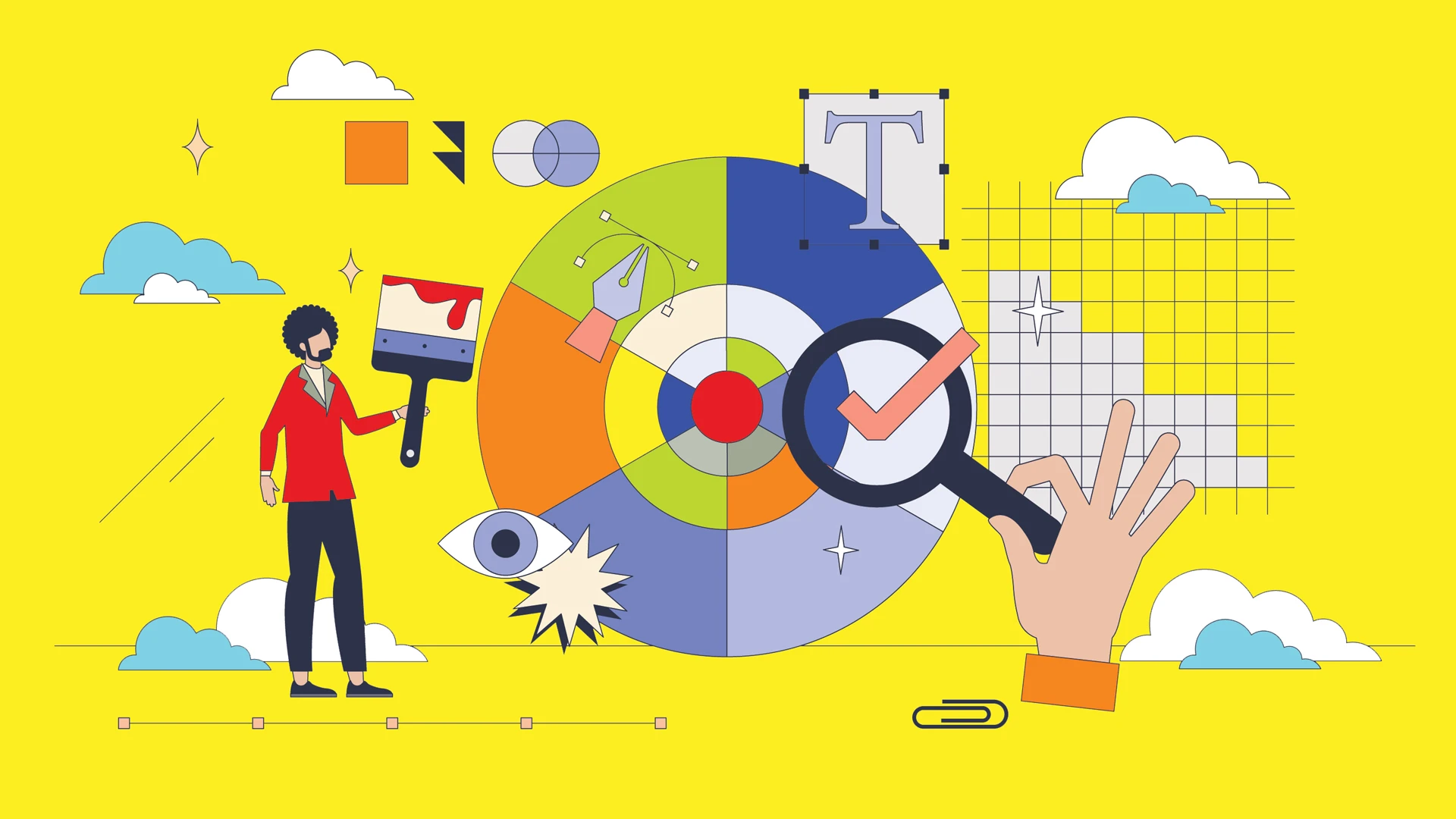The role of AI in driving innovation across various sectors and creating new opportunities
Artificial Intelligence (AI) has proven itself to be a powerful tool for driving innovation across a wide range of industries. From healthcare to finance, education to manufacturing, AI is transforming the way businesses operate and creating new opportunities for growth and development. AI development services have played a significant role in enabling organizations to tap into this potential, offering solutions that optimize efficiency, enhance decision-making, and push the boundaries of what’s possible. AI’s Impact on Business Innovation AI is not just about automating repetitive tasks—it’s about pushing the boundaries of innovation. By using algorithms and machine learning, AI can analyze vast amounts of data to uncover patterns, make predictions, and identify new trends. These insights can help businesses in every sector find new ways to improve their products, services, and overall operations. For instance, in industries like retail and e-commerce, AI can analyze consumer behavior to offer personalized shopping experiences. By understanding what customers want, when they want it, and how they make purchasing decisions, businesses can deliver tailored recommendations and marketing strategies that increase customer satisfaction and sales. In sectors like agriculture, AI has led to innovations in precision farming. AI-powered drones and sensors collect data on soil conditions, crop health, and weather patterns, helping farmers make informed decisions that maximize yields and minimize waste. By utilizing AI, agriculture has become smarter, more sustainable, and more efficient. AI in Healthcare: Revolutionizing Treatment and Diagnosis One of the most transformative sectors for AI is healthcare. AI’s ability to process vast amounts of medical data quickly and accurately is opening up new possibilities for patient care. Machine learning algorithms can analyze medical records, lab results, and imaging scans to detect diseases, often before symptoms appear. This allows for earlier diagnosis and more effective treatments, ultimately saving lives. AI is also enhancing personalized medicine. By analyzing a patient's genetic makeup, lifestyle, and other factors, AI can recommend treatment plans tailored to the individual, increasing the chances of success. The development of AI-based tools and systems has revolutionized the healthcare sector, improving patient outcomes and making healthcare more accessible. AI in Finance: Improving Decision-Making and Risk Management In the financial world, AI is playing a crucial role in improving decision-making and managing risks. AI-powered algorithms can analyze market trends, predict future movements, and offer investment recommendations with a level of accuracy and speed that human analysts cannot match. This has led to smarter investments and better financial planning for businesses and individuals. AI is also helping financial institutions detect fraud by analyzing transaction data for suspicious patterns. The ability to identify potentially fraudulent activity in real-time allows companies to respond quickly and prevent significant losses. By automating tasks like fraud detection and risk assessment, AI is making the finance sector more secure and efficient. AI in Education: Making Learning More Accessible AI is transforming education by making learning more personalized and accessible to a broader audience. AI-powered tools can adapt to individual learning styles, offering personalized tutoring and feedback to students. This creates a more inclusive environment where students of all abilities can thrive. For example, AI can assess a student’s strengths and weaknesses, providing customized lessons and exercises that target areas where they need improvement. AI-powered chatbots are also helping students by answering questions, providing study materials, and offering support 24/7. In this way, AI is bridging gaps in education and ensuring that learning is available to more people, regardless of location or socioeconomic status. AI in Manufacturing: Streamlining Production and Improving Efficiency Manufacturing has long been a key area for technological innovation, and AI is no exception. By incorporating AI into production lines, companies can streamline their processes, reduce errors, and enhance productivity. AI can monitor machinery in real time, predict when maintenance is needed, and even optimize production schedules to minimize downtime. One example of AI in manufacturing is predictive maintenance. AI algorithms can analyze data from machines to identify potential issues before they lead to costly breakdowns. This allows manufacturers to avoid unplanned downtime and optimize their operations, ensuring that production runs smoothly. AI is also driving innovation in product design and testing. Through simulations and optimization algorithms, AI can help manufacturers design products faster and more accu

Artificial Intelligence (AI) has proven itself to be a powerful tool for driving innovation across a wide range of industries. From healthcare to finance, education to manufacturing, AI is transforming the way businesses operate and creating new opportunities for growth and development. AI development services have played a significant role in enabling organizations to tap into this potential, offering solutions that optimize efficiency, enhance decision-making, and push the boundaries of what’s possible.
AI’s Impact on Business Innovation
AI is not just about automating repetitive tasks—it’s about pushing the boundaries of innovation. By using algorithms and machine learning, AI can analyze vast amounts of data to uncover patterns, make predictions, and identify new trends. These insights can help businesses in every sector find new ways to improve their products, services, and overall operations.
For instance, in industries like retail and e-commerce, AI can analyze consumer behavior to offer personalized shopping experiences. By understanding what customers want, when they want it, and how they make purchasing decisions, businesses can deliver tailored recommendations and marketing strategies that increase customer satisfaction and sales.
In sectors like agriculture, AI has led to innovations in precision farming. AI-powered drones and sensors collect data on soil conditions, crop health, and weather patterns, helping farmers make informed decisions that maximize yields and minimize waste. By utilizing AI, agriculture has become smarter, more sustainable, and more efficient.
AI in Healthcare: Revolutionizing Treatment and Diagnosis
One of the most transformative sectors for AI is healthcare. AI’s ability to process vast amounts of medical data quickly and accurately is opening up new possibilities for patient care. Machine learning algorithms can analyze medical records, lab results, and imaging scans to detect diseases, often before symptoms appear. This allows for earlier diagnosis and more effective treatments, ultimately saving lives.
AI is also enhancing personalized medicine. By analyzing a patient's genetic makeup, lifestyle, and other factors, AI can recommend treatment plans tailored to the individual, increasing the chances of success. The development of AI-based tools and systems has revolutionized the healthcare sector, improving patient outcomes and making healthcare more accessible.
AI in Finance: Improving Decision-Making and Risk Management
In the financial world, AI is playing a crucial role in improving decision-making and managing risks. AI-powered algorithms can analyze market trends, predict future movements, and offer investment recommendations with a level of accuracy and speed that human analysts cannot match. This has led to smarter investments and better financial planning for businesses and individuals.
AI is also helping financial institutions detect fraud by analyzing transaction data for suspicious patterns. The ability to identify potentially fraudulent activity in real-time allows companies to respond quickly and prevent significant losses. By automating tasks like fraud detection and risk assessment, AI is making the finance sector more secure and efficient.
AI in Education: Making Learning More Accessible
AI is transforming education by making learning more personalized and accessible to a broader audience. AI-powered tools can adapt to individual learning styles, offering personalized tutoring and feedback to students. This creates a more inclusive environment where students of all abilities can thrive.
For example, AI can assess a student’s strengths and weaknesses, providing customized lessons and exercises that target areas where they need improvement. AI-powered chatbots are also helping students by answering questions, providing study materials, and offering support 24/7. In this way, AI is bridging gaps in education and ensuring that learning is available to more people, regardless of location or socioeconomic status.
AI in Manufacturing: Streamlining Production and Improving Efficiency
Manufacturing has long been a key area for technological innovation, and AI is no exception. By incorporating AI into production lines, companies can streamline their processes, reduce errors, and enhance productivity. AI can monitor machinery in real time, predict when maintenance is needed, and even optimize production schedules to minimize downtime.
One example of AI in manufacturing is predictive maintenance. AI algorithms can analyze data from machines to identify potential issues before they lead to costly breakdowns. This allows manufacturers to avoid unplanned downtime and optimize their operations, ensuring that production runs smoothly.
AI is also driving innovation in product design and testing. Through simulations and optimization algorithms, AI can help manufacturers design products faster and more accurately, speeding up the time to market and reducing costs. In the long run, AI in manufacturing increases efficiency and helps companies stay competitive.
AI in Customer Service: Enhancing Experience and Satisfaction
Customer service has become one of the most visible applications of AI in recent years. AI-powered chatbots, virtual assistants, and automated customer support systems have revolutionized the way businesses interact with their customers. These systems can handle routine inquiries, offer personalized recommendations, and even troubleshoot problems, freeing up human agents to focus on more complex tasks.
By using AI in customer service, businesses can offer 24/7 support, reduce wait times, and improve customer satisfaction. AI systems can learn from each interaction, becoming more accurate and helpful over time. This leads to a better overall customer experience, which is critical for retaining customers and driving growth.
The Future of AI and Innovation
As AI continues to evolve, its role in driving innovation will only grow. AI development services are already shaping the future by creating new tools and technologies that are changing how we live and work. From self-driving cars to smart cities, the possibilities for AI are limitless.
However, as AI becomes more integrated into various industries, businesses must also consider the ethical implications. Ensuring that AI is used responsibly and that data privacy is maintained will be crucial to its continued success. Additionally, businesses will need to invest in AI research and development to stay ahead of the competition and fully harness the potential of this technology.
Conclusion: Unlocking New Opportunities with AI
Artificial Intelligence is driving innovation across numerous sectors, creating new opportunities for businesses to grow, improve, and stay competitive. From healthcare to finance, education to manufacturing, AI is revolutionizing how industries operate and opening doors to new possibilities. By partnering with AI development services, companies can leverage AI to unlock new business models, improve customer experiences, and push the boundaries of what’s possible. Embracing AI today is the key to shaping a successful future in the years to come.










































































































































































![[The AI Show Episode 142]: ChatGPT’s New Image Generator, Studio Ghibli Craze and Backlash, Gemini 2.5, OpenAI Academy, 4o Updates, Vibe Marketing & xAI Acquires X](https://www.marketingaiinstitute.com/hubfs/ep%20142%20cover.png)






























































































































![[DEALS] The Premium Learn to Code Certification Bundle (97% off) & Other Deals Up To 98% Off – Offers End Soon!](https://www.javacodegeeks.com/wp-content/uploads/2012/12/jcg-logo.jpg)
![From drop-out to software architect with Jason Lengstorf [Podcast #167]](https://cdn.hashnode.com/res/hashnode/image/upload/v1743796461357/f3d19cd7-e6f5-4d7c-8bfc-eb974bc8da68.png?#)









































































































.png?#)


(1).jpg?width=1920&height=1920&fit=bounds&quality=80&format=jpg&auto=webp#)




-Mario-Kart-World-Hands-On-Preview-Is-It-Good-00-08-36.jpg?width=1920&height=1920&fit=bounds&quality=80&format=jpg&auto=webp#)
























_NicoElNino_Alamy.png?#)
_Igor_Mojzes_Alamy.jpg?#)

.webp?#)
.webp?#)





























































































![Gemini can be the biggest AI platform so long as Google integrates it in more areas [Video]](https://i0.wp.com/9to5google.com/wp-content/uploads/sites/4/2025/03/Gemini-Live-with-Im-in-my-Gemini-era-sticker.jpg?resize=1200%2C628&quality=82&strip=all&ssl=1)













![Apple Considers Delaying Smart Home Hub Until 2026 [Gurman]](https://www.iclarified.com/images/news/96946/96946/96946-640.jpg)
![iPhone 17 Pro Won't Feature Two-Toned Back [Gurman]](https://www.iclarified.com/images/news/96944/96944/96944-640.jpg)
![Tariffs Threaten Apple's $999 iPhone Price Point in the U.S. [Gurman]](https://www.iclarified.com/images/news/96943/96943/96943-640.jpg)





























































































































